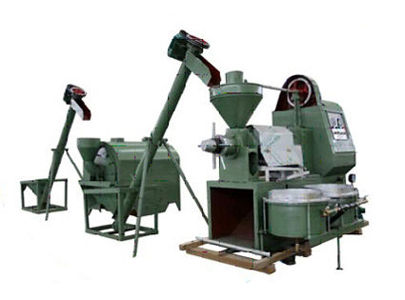Most countries in the world have large refineries producing cooking oil from a variety of raw materials including maize, sunflower, soya, coconut, mustard seed and groundnuts. These large centralised plants have the advantage of high efficiency and reduced costs due to the economy of scale. Despite this, in many situations process oilseed on a small scale decentralised oil extraction can prove to be economic and provide opportunities for income generation.
Most commonly, opportunities exist where:
- oil produced in the large refineries does not find its way out to more remote and distant rural areas.
- high transport costs are involved in wide distribution of cooking oil so increasing the price of oil.
- small farmers produce oilseeds such as groundnuts for sale to the large refineries which they then buy back, at high cost, in the form of cooking oil but without the valuable high protein oil cake.
- the crude oil is used to produce added value products, most commonly soap.
- more unusual, high value oilseeds are available; examples include Brazil Nuts, Macadamia Nuts.

The policy environment
In many countries the oil processing sector is highly politicised and regulations exist which make entering the market difficult and tend to support the monopoly of the large processors. Large refineries may, for example, insist that farmers sell all their seed under a contract. In other cases seed has to be sold to a central Government marketing board, the board also supplying seed for planting. To determine whether small scale processing is likely to be economic it is most important to first investigate the local situation and regulations.
Raw material supply
Clearly there must be sufficient raw material available locally. One factor that will greatly influence the viability of the enterprise will be the amount of credit needed to purchase a stock of seed. The enterprise should aim to keep the minimum stock of seed but always have enough to continue operating throughout the year. This requires considerable working capital.
